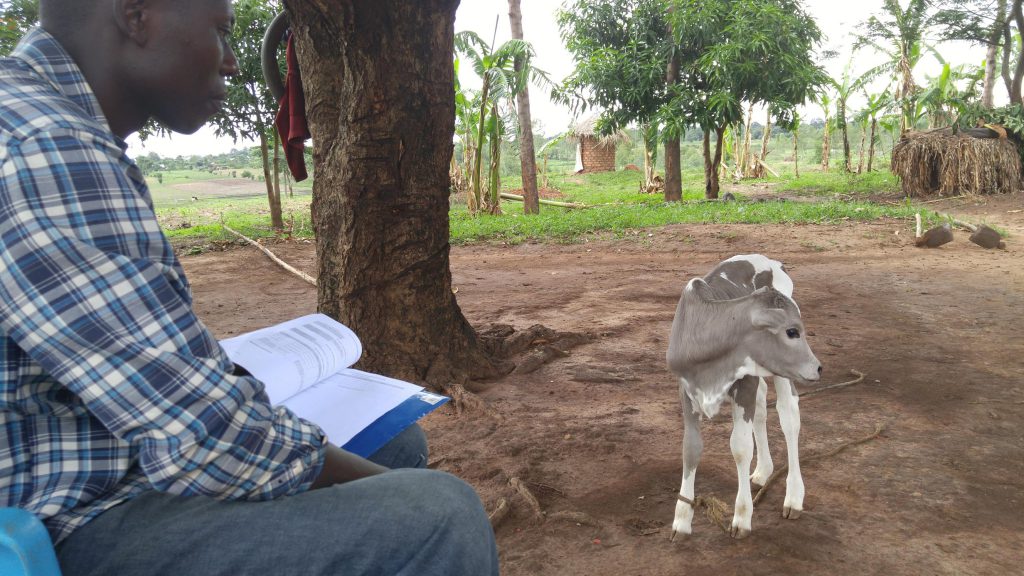Guest post by Jeff Mosenkis of Innovations for Poverty Action.
Above: Maintaining attention for a long interview is always a challenge
- Fake news is already disrupting Kenya’s election.
- Qualtrics, the research software company, did a randomized experiment testing the kinds of extra questions researchers embed in surveys to make sure respondents are paying attention and answering thoughtfully. They found including those questions earlier in a survey actually led to respondents performing worse on later questions. They now recommend against including those kinds of questions. (h/t Sanjay Srivastava)
- It’s worth listening to the pair of EconTalk podcasts that arose out of Chris and Lant Pritchett’s back and forth on Chris’ open letter to Bill Gates suggesting he bet on cash rather than handing out chickens as aid.
- Lant responded that the type of work that microeconomists do (particularly the crowd who does randomized controlled trials) pales in potential compared to the massive effects on every aspect of poverty that comes with the kind of large-scale economic growth that China and India have seen. He argues that everybody in development should be on “team economic growth.”
- Chris was on this week with a great discussion about why he still believes these questions are important to answer. He argues that these kinds of studies do more than just answer a question at hand, they’ve really advanced our understanding of what keeps people in poverty. (It’s also worth listening to the brief discussion on what kind of research young researchers should be doing.)
- Along those lines, it’s also worth checking out this tidbit from the very good interview of Tyler Cowen by Stripe CEO Patrick Collison (iTunes, SoundCloud, transcript). It followed a discussion questioning how much concrete understanding of the economy macroeconomics has brought us:
COLLISON: Yeah. What are the, say, top two most underinvested areas of economics today?
COWEN: Culture and economics, for me, is by far the most underinvested. I still think randomized control trials, they’re expensive, but you do actually learn things from them, which are probably true. That’s remarkable.
[laughter]
COWEN: They contain actual knowledge. Now, it’s true the questions you can ask are narrower, but it seems odd to turn down the reward of actual knowledge, right? [laughs]
COLLISON: You recently linked to the new book whose title is escaping me — you’ll probably remember it — on the series of interviews on random control trials in economics. And there’s all these questions about to what degree they have external validity and so on. Do you think the critics are overstating the case?
COWEN: One of the main criticisms is, if you do randomized control trials, you’re studying something like, “Well, does paying mothers to bring their children in for vaccines work in getting the mothers to bring the children in?” You’re not asking big-picture questions of political economy. But big-picture questions of political economy — they can be very hard to control. There’s no one who can steer, say, what will happen with India or Kenya, but you can change some policy regarding, “Do you reward mothers for bringing their children in for vaccinations?”
You know the subtitle of our blog, “Small Steps Toward a Much Better World”: there’s something to that. We can make a lot of these small steps. It’s also related to the correct attitude about management. A lot of good management is doing very small things and not always some grand philosophy. So I think this is actually still underrated.
But with Lant’s always insightful critiques including how we’re thinking about measurement completely wrong in education, we created this helpful predictor to know what he’ll be writing about next:


3 Responses
nice post
Looking Nice Bachda
golu dolls